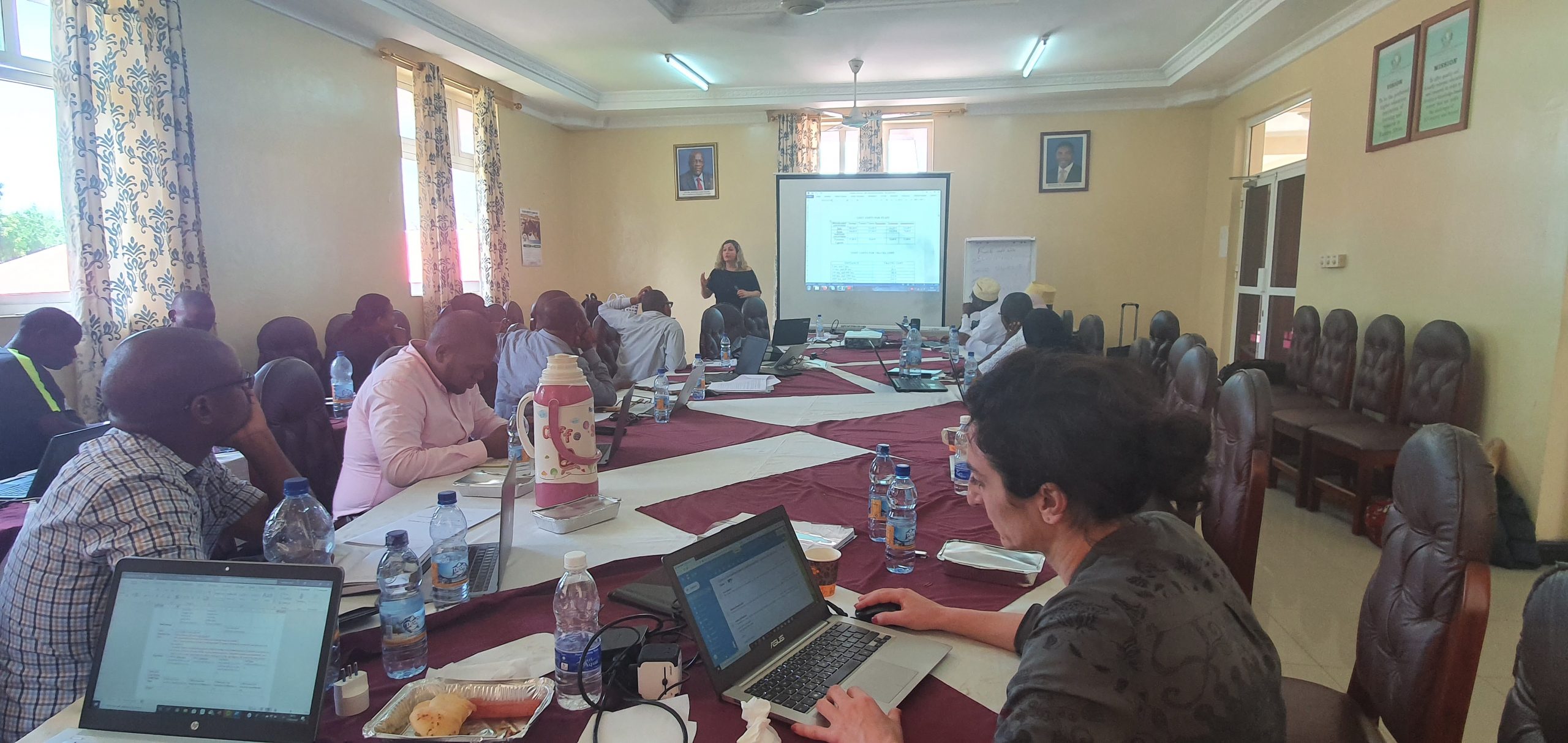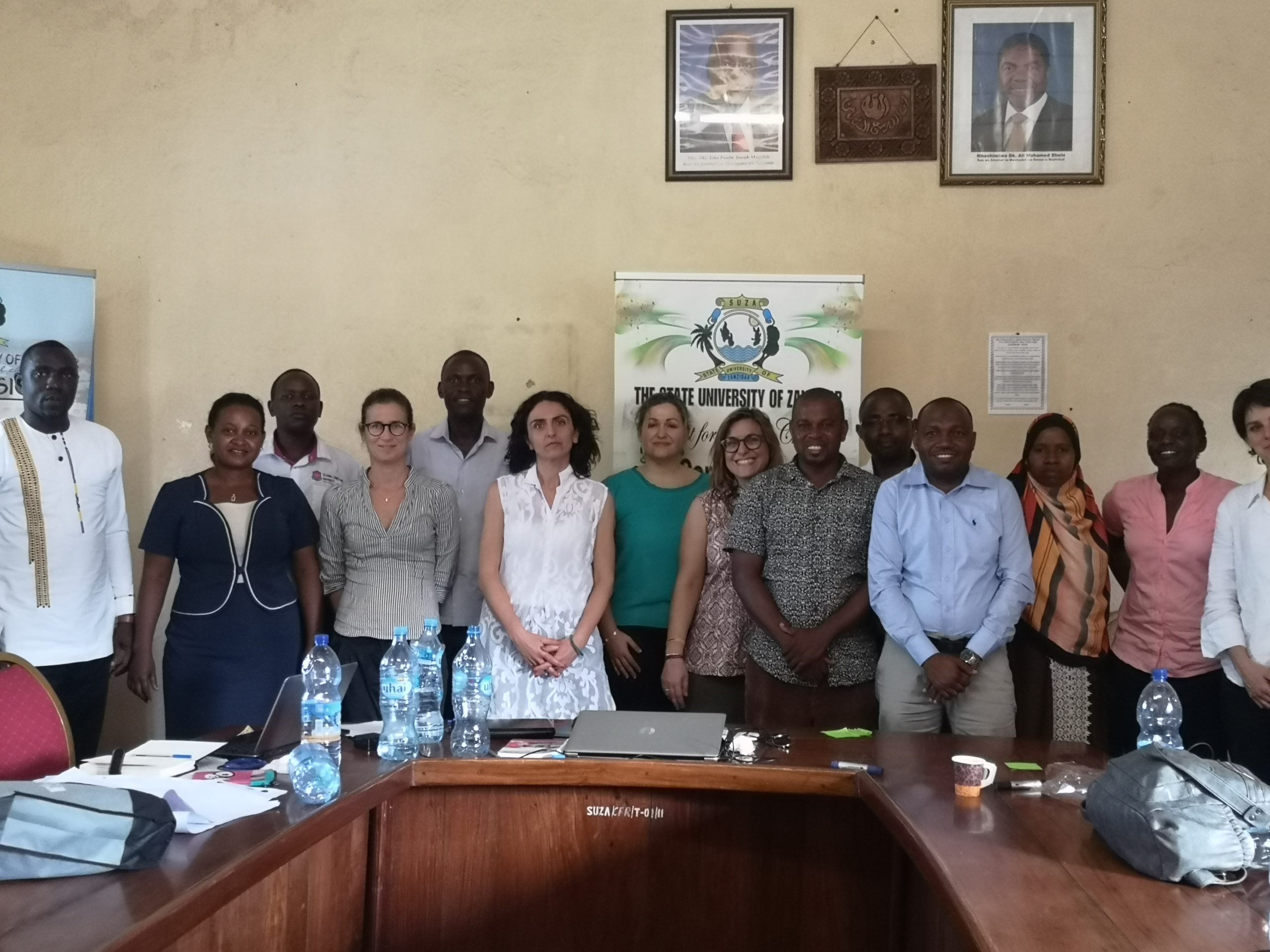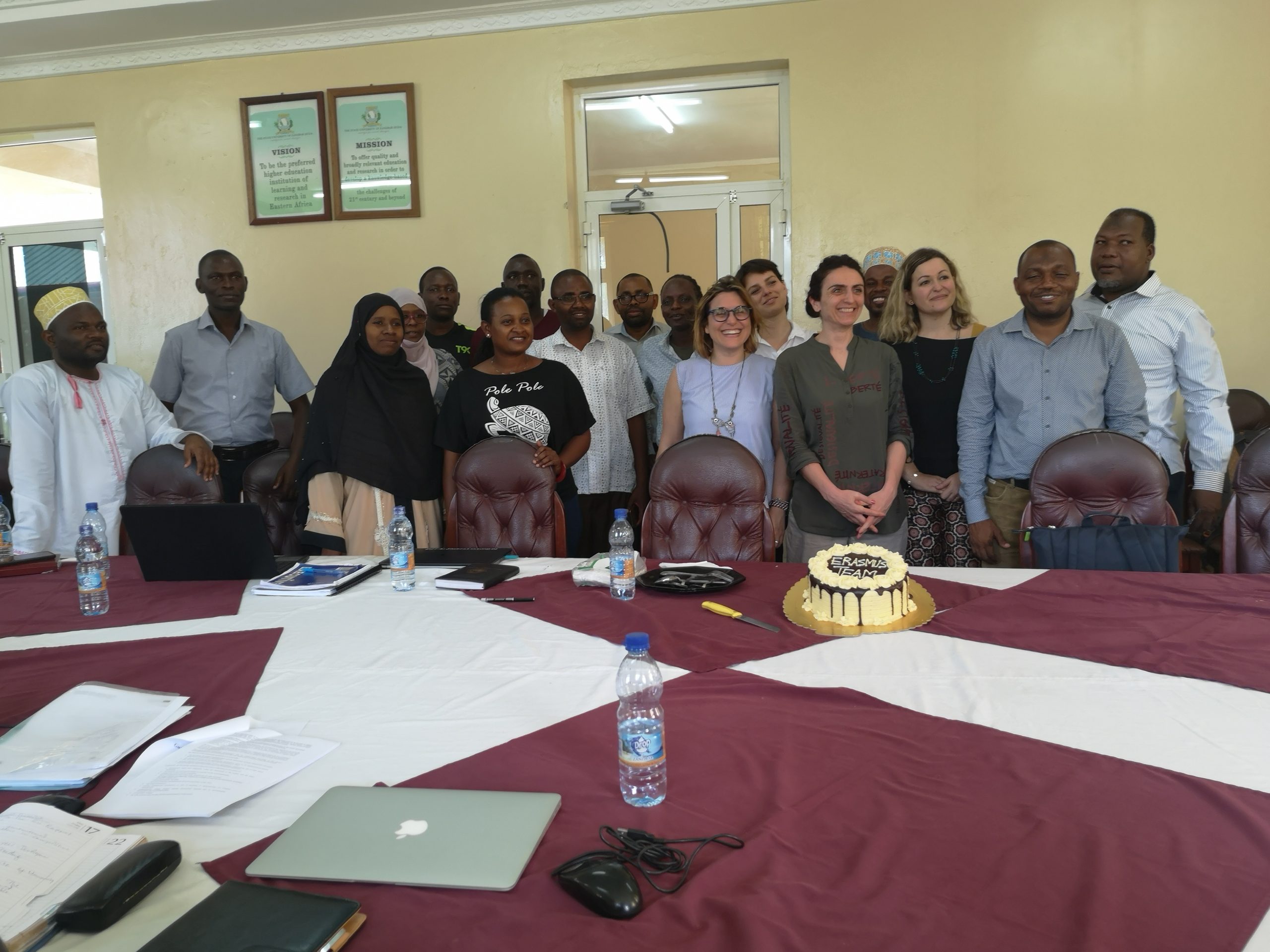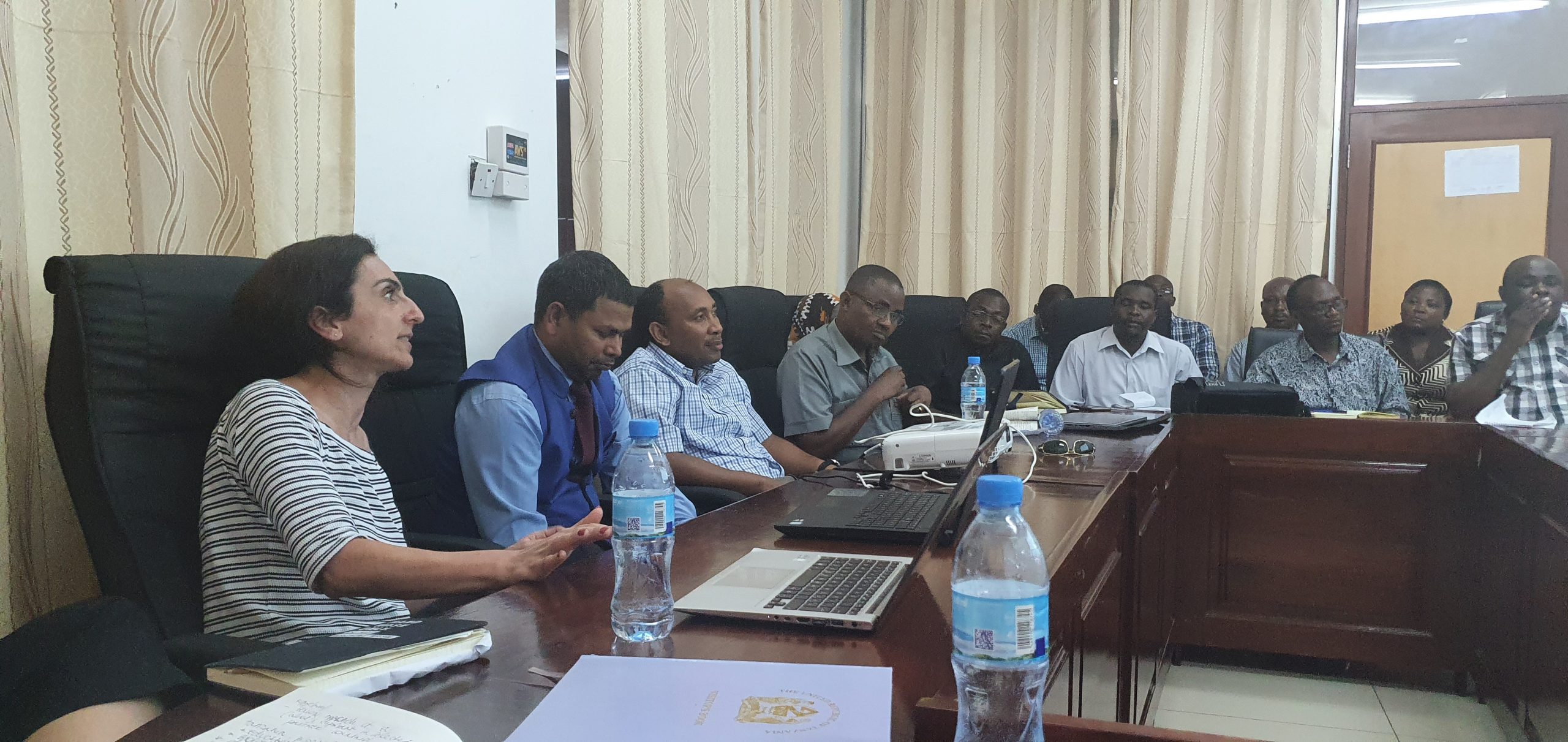PROJECT DESCRIPTION
DALILA is a capacity-building project funded by EACEA, the Education, Audio-visual and Culture Executive Agency of the European Union.
The main objective of the project proposal is to establish n. 6 new courses on “Renewable Technologies” and “Green Business creation and development” in 2 Universities in Tanzania and 2 in Uganda (see Partnership). The courses will be based on an innovative approach that includes the promotion of an equal access to higher education and the facilitation of students’ transition to work.
The project in the long term will therefore also benefit local communities that need cheaper and cleaner sources of energy for everyday activities (i.e. cooking and lighting) that could be realised through increasing knowledge and awareness on renewable energy. Dalila project in fact will strength public awareness on how energy efficiency and better energy consumption patterns are necessary for a sustainable development, laying the foundations for new strategies for a sustainable development and growth.
The project conforms to the priorities at both national and regional levels in Tanzania and Uganda.
In particular, the common national target to increase independency on energy/electricity under the increasing demand for energy and a high international pressure to mitigate climate change risks and environmental exploitation. Development and diffusion of green energy technologies involve both science and behaviours, thus the project and all the associated activities will be multidisciplinary in nature to achieve wider uptakes of these technologies within the community.


SPECIFIC GOALS
- Develop modules/curriculum in renewable and green energy;
- Fill the local skills gaps in RE sector;
- Increase student’s enrolment;
- Enhance the capacity building to academic staff, laboratory scientists and administrative staff;
- Improve collaboration with local labour market and RE stakeholders;
- Consolidate the commitments of local stakeholders with universities in order to update the high education curricula in RE to meet the skill needs of local green energy labour market;
- Enrich competences on Quality Assurance and European Systems of teaching and administrative staff (Bologna system);
- Create stable and durable collaboration among their international offices;
- Up-date/create laboratories where professors could improve the quality and international approach of their modules and students could mature complete skills (theoretical, practical and technical) in RE;
- Increase applied renewable energy research.


In order to reach all its goals, DALILA foresees the development of 8 Work packages:
WP 1 - SET UP OF DALILA PROJECT FRAMEWORK
WP1 aims at creating the frame into which the main objective of this project will be implemented and developed. Detailed syllabus of the n. 6 new courses will be elaborated and submitted to local Authorities. The Beneficiary universities will also work in the detailed list of equipment for the new Green Laboratories. Info-days will be held under the supervision of A SUD to raise local awareness on the risks connected to the Climate change.
WP 2 - DEVELOPMENT OF COMPETENCES AND NEW COURSES
It aims at preparing detailed education and training materials on “renewable technologies” and “green business creation and development”. A five-day Scientific symposium will be organized at the University of Cadiz to introduce the elaborated didactic materials and to train Professors will be responsible of the DALILA courses. Green laboratories will be installed at Beneficiary Universities and Local technical staff and professors will be trained.
WP 3 - MODERNIZATION OF LEARNING: GREEN MOOCS
WP3 aims at converting part of n. 6 courses, elaborated for lessons in presence, in video-lessons for open distance education and training. Two different MOOCs, composed at least of 12 video lessons of a duration of 10 minutes each, will be designed, recorded and uploaded on the Official website of DALILA project (and on the Universities website if requested) for the free access of all interested users. The n. 2 MOOCs will concern “Renewable technologies and Sustainable development” and “Business Models for Renewable Energy”.
WP 4 - GREEN COURSES DELIVERY AT TARGET UNIVERSITIES
DALILA courses will be delivered within the target universities in Tanzania and Uganda to the selected students. At the end of the courses the best n. 3 students and n. 1 PhD student (from each beneficiary university) will be selected to spend a period of specialization at the European Universities. Students specialized in the DALILA courses could ask for a thesis on Climate change and Environmental protection.
WP 5 - GREEN AND BUSINESS: SUPPORT TO EMPLOYABILITY
WP5 is aiming at integrating employability-focused moments into curricula. The activities of WP5 will provide students with required practical skills and competencies to be able to reflect potential labour market demand for the knowledge acquired in DALILA courses. Engagement with local actors involved in training and supporting micro and small entrepreneurs, employers and local businesses will ensure work experience opportunities for students.
WP 6 - QUALITY, MONITORING AND SUSTAINABILITY
This group of activities is conceived to contribute to the quality system of the DALILA courses and the didactic laboratories, to ensure the quality of the project implementation, the achievements of its objectives and results through a tailored Monitoring & Evaluation and to guarantee the sustainability of the action. The Quality Team (QT) will be composed by n. 3 representatives among Partners plus one external member to be identified. An External M&E; Expert will be selected and nominated by the SSC.
WP 7 - DISSEMINATION & RESULTS
Dissemination actions will be organized through a Communication Plan elaborated by UCA and UDOM. A project website will be set up and linked to the existing project web sites of DALILA Partners. A call for ideas will be opened to all students of Beneficiary Universities in order to selected the DALILA official logo. The winner will be invite to present the logo during the 2nd SSC meeting. Info-day will be organized to enrol students in the new courses.
WP 8 - MANAGEMENT OF PROJECT ACTIVITIES
Project Management is conceived and set for assuring the overall operational and financial coordination of the project. The Management Body will be the Steering and Scientific Committee (SSC), The operational coordination will be in charge of a Project Coordinator, supported by an Administrative Team (a Financial Expert and a secretary). Two Technical Units (TU) will be established for each thematic area to be developed in the project: Business Unit (BU) and Engineering Unit (EnU). All partners will take part in the activities implementation, participating in management structures, being also involved in the direct coordination of local activities.
